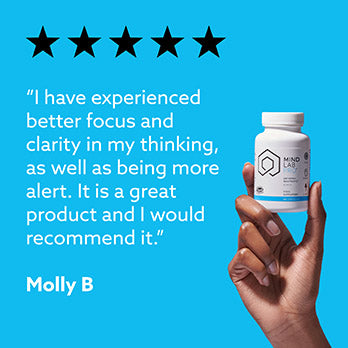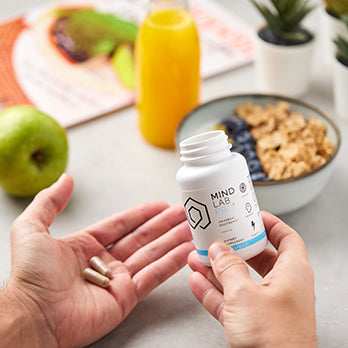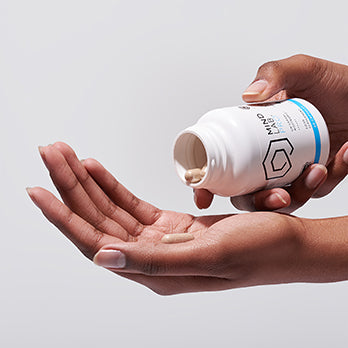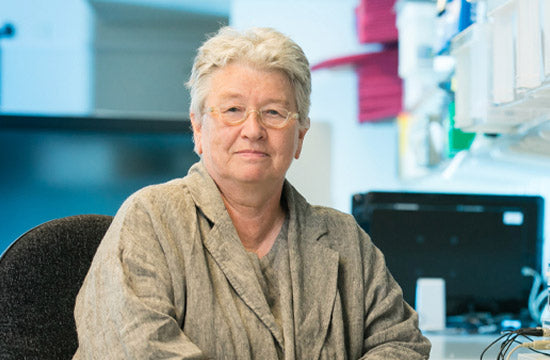Depending on where you live, buying legal nootropics can either be a walk in the park or a long wait at the pharmacy.
Some of the most frequently asked questions regarding nootropics and non-nootropic cognitive enhancers include:
- Are they legal to buy, own, and consume?
- Do I need a prescription for nootropics?
- Is it legal to import nootropics from other countries?
And, most importantly: How can I get nootropics legally?
Despite their massive rise in popularity, nootropic legality remains a contentious topic across the world – namely because no single government holds an identical legal definition of what constitutes a nootropic. We're delving into the topic in this article. Let's get to it!
Key Takeaways
- The legality of nootropics varies by country and substance, with some being over-the-counter, others prescription-only, and some banned.
- Natural nootropics like herbs and vitamins are generally legal and widely available, while synthetic nootropics may have more restrictions.
- Different countries have different regulations for nootropics, with stricter controls in some regions compared to others.
- If a nootropic supplement is to be sold legally, it must meet specific regulatory standards for safety and labeling -- just like any other dietary supplement.
- Some synthetic nootropics are classified as research chemicals, meaning their legality is often in a gray area and not intended for human consumption.
- It’s important for consumers to check the legal status of specific nootropics in their country and consult a healthcare provider before use.
- Some nootropics require a prescription and are classified as prescription drugs. This includes nootropics used to treat narcolepsy, ADHD (attention deficit hyperactivity disorder) or Alzheimer's.
Quick Summary: Nootropic Legality in a Few Countries

Following is just a quick sampling of legality of nootropics in a few countries. We have a more extensive list further down in this guide.
Note: Pharmaceutical drugs that are considered to be "nootropics" require a prescription in all of the following countries. In this article, we are focusing on nootropic supplements. But there exists a hazy gray area in between which can complicate matters. Especially on a global scale.
United States: it is legal to purchase, own, and consume all of the popular nootropic supplements. The U.S. does not control nor schedule most nootropics. The public can also buy some synthetics under the “research compounds” classification, but technically it is not legal to consume them.
Canada: Are nootropics legal in Canada? As long as they are presented as cognitive enhancement dietary supplements. Nootropic drugs require a prescription. Canada designates Drug Identification Numbers (DIN) to regulated substances. As of now, most nootropics do not receive DINs because they are typically not classified as drugs in Canada.
United Kingdom: Natural nootropics are widely available over-the-counter. Nootropic drugs are legal but require a prescription. Unlicensed synthetic nootropics may be considered controlled substances under the Psychoactive Substances Act.
Australia: Natural nootropics are legal as dietary supplements. Some synthetic nootropics, including racetams, are banned or controlled. Piracetam for example ranks as Schedule IV. It's worth noting that Australia has strict regulations on alternative health practices. Certain herbs may be classified as "therapeutic goods", in Australia, requiring registration or approval. Importing unapproved herbal supplements can lead to legal issues.
European Union: Regulations vary by country within the EU. Generally, natural nootropics are legal, while prescription nootropics require a prescription. Certain synthetic nootropics may be restricted or fall into legal gray areas.
Germany: Germany is relatively strict when it comes to importing restricted nootropic substances from other countries, although most popular nootropics are unrestricted. Natural nootropics are legal as supplements. The sale of unlicensed synthetic nootropics is generally prohibited.
Japan: Japan also limits importation of restricted nootropic substances, an added frustration to Japan’s limited over-the-counter options — however, these options are reportedly expanding. Japan also has strict regulations on certain herbal supplements that are considered "medicinal" and treated like any other prescription drug.
Russia: Russian nootropic legality is complex. Many legal nootropics including memory products may be bought over-the-counter to enhance cognition, except for certain brand names. Some nootropics, like piracetam, are widely used and available OTC, too. However, newer or less established synthetic nootropics may be regulated or require a prescription.
Brazil: Brazil has stringent regulations on natural health products, and certain nootropic herbs may be restricted or require regulatory approval for sale.
China: China houses the largest nootropic dispensary. Most nootropics are legal there. However, regulation of synthetic nootropics is complex, with some being unregulated and others tightly controlled. Hong Kong has stricter substance limits.
India: Natural nootropics are available without restriction. Ayurvedic herbalism, especially, is woven into the culture and widely practiced. Some synthetic nootropics may be unregulated for now but are increasingly scrutinized.
France: Piracetam is a regulated substance, Ordonnance-Liste II. Most nootropics are legal. French nootropic regulation is light.
Who Regulates Nootropics?

Nootropics are often used to enhance cognitive function and are regulated differently depending on their classification.
Drug or Dietary Supplement? This is ultimately the question.
Most regulatory government agencies regard nootropics as nootropic supplements, which are lightly regulated.
The nootropic users themselves – you and us – are “regulating” proper nootropic usage as most regulatory agencies regard nootropics as dietary supplements. It is crucial for manufacturers to adhere to natural ingredient standards for nootropic supplements.
This is why DIY nootropic threads have recently become such a massive online forum phenomena.
Forum sites such as Reddit and Bluelight have become valuable resources for anyone who wants to play around with homemade nootropics, covering safety, source, and usage concerns related to dosaging, stacking, cycling, fact-checking, etc. questions and answers.
Most nootropics are legal. They are classified as dietary supplements, which are regulated as foods.
Foods are legally assumed “innocent” (i.e., safe) until proven guilty, so to speak. This is a flipside to certain synthetics, which require for their legal innocence to be proven first. While most nootropics are considered safe, some prescription nootropics can cause side effects such as high blood pressure.
In fact, this was the vision of Dr. Corneliu Giurgea, the founder of nootropics: To develop a series of cognitive enhancers absent of the “usual pharmacological effects of psychotropic drugs.”(1)
Adherence to this criterion theoretically eliminates the need for law and regulation.
However, should a nootropic overstep this boundary, there are legal and policy measures in place to regulate its usage.
Controlling and Scheduling
Is my nootropic legal? The rise in popularity of smart drugs has led to increased scrutiny and regulation of nootropics. To find out if your nootropic is legal, you need to know:
- Is the nootropic controlled?
- Is the nootropic scheduled?
And then the sub-questions: How much control and which schedule?
The U.S. model provides the following definitions:
- Controlled nootropics - require prescription or age-verification to buy.
- Scheduled nootropics - ranked, or scheduled, by their risk of abuse: Schedule I being the highest risk category, Schedule V being the lowest.(2)
Typically, the schedule of a nootropic determines its control. High-risk substances are barred by strict access checkpoints.
Some are just flat-out illegal to own and consume. On the other hand, low-risk items are often sold OTC.
Due to their inherently safe, Dr. Giurgean design, most nootropics are low-risk, and therefore, legal.
Nootropic Legality by Classification

There is no one-size-fits all legal definition of nootropics because there is no one-size-fits all nootropic, and their classification can impact their perceived effectiveness in improving cognitive performance.
Here’s another turn of the screw: The particular legal status of a particular nootropic may not universally apply to other nation’s regulatory codes.
For example, a single nootropic might be:
- An over-the-counter, legal nootropic in Canada
- A prescription-based nootropic in the U.K.
- A banned illegal nootropic in Australia.
This is often the case with synthetic (e.g., racetams) and semi-synthetic (e.g., vinpocetine) nootropics.
Case Study: Racetams in USA. Racetams, a class of synthetic nootropics that includes popular compounds like piracetam, are in a legal gray area in the United States. They are not approved by the FDA for any medical use, and therefore cannot be marketed or sold as dietary supplements. However, racetams are not classified as controlled substances, meaning they are not outright illegal to possess or use.
For the sake of simplicity here, we’ll provide a brief review on the common legal statuses of nootropics by their general types, including:
- Herbs and Herbal Extracts
- Dietary Nootropic Nutrients
- Synthetics and Semi-Synthetics
While bearing in mind that your local legal system may differ from the global law standard, rest assured that the first two categories on this list are virtually 100% legal across the world:
Herbs and Herbal Extracts as Legal Nootropics

Bacopa monnieri, Rhodiola rosea, Camellia sinensis – such cognitive enhancing botanicals backed by centuries and centuries of safe, effective human use have generally received the “okay” by the world’s top regulatory bodies.
Ginkgo biloba is another popular herbal nootropic ingredient known for its potential cognitive benefits.
And the same applies to their extracts as well – although not all, most notably:
- Ephedra (Ma Huang) - potent natural stimulant with legal restrictions due to its well-documented side effects.(3)
- St. John’s Wort - largely unrestricted serotonergic mood booster, often warned against for its negative interactions with prescription synthetics.(4)
Aside from a few rare examples, nootropic herbs and herbal extracts are completely legal to buy, own, and consume, even without the caveat that they be sold as research compounds.
Die-hard nootropic enthusiasts may even grow their herbal cognitive enhancers, if they are so inclined.
The legal accessibility of natural nootropics is earned by their legal and literal status as foods. Herbal extracts on the other hand don’t quite literally qualify as foods however, so some user discretion may be advised in supplementing extracts.
Nootropic Herbs that Toe the Line: Since the legal downfall of ephedra, certain ephedra-like extracts (e.g., synephrine) have infiltrated the energy market. Despite their overwhelming popularity as fat-burners, natural, risky stimulants frequently dip into the nootropic scene as well.
Dietary Nootropic Nutrients

Dietary compounds, such as vitamins, minerals, and aminos, are generally uninhibited by government regulation.
To completely restrict access to vitamins and minerals would require fatalistic restrictions on essentially all solid foods. Which would be a counter-productive move by health-focused agencies for obvious reasons.
As such, food-related nootropic nutrients require no regulation on the customer end of the transaction, yet there are purity, safety, and labeling codes that manufacturers must abide by to ensure the quality of their products.
Representing an annual expenditure of over $25 billion in the United States alone, dietary supplements undergo stringent quality assurance procedures before reaching the shelves.(5) For the customers, the legal concerns over nootropic vitamins and minerals are just that: Assurance.
However, to achieve brain-boosting performance and support optimal brain function, nootropic users will need to stack more than OTC vitamins and minerals in their supplement. Only the B vitamins possess substantial cognitive enhancing potential.
Synthetics and Semi-Synthetics

Here is where you’re most likely to encounter legal issues with nootropics: Nootropic Synthetics and Semi-Synthetics.
If you’re wondering what’s the difference, here it is:
- Nootropic Synthetics - are synthesized from inorganic material.
- Nootropic Semi-Synthetics - are synthesized from natural sources.
Some synthetic and semi-synthetic nootropics are being studied for their potential to reduce cognitive decline.
A key example of a synthetic nootropic – in fact the first synthesized nootropic – is piracetam, the original nootropic cognitive enhancer in a long series of cholinergic racetams.(6) To demonstrate the complexity of synthetic nootropic legality: piracetam is legal to order and consume in Canada and the USA, but is barred by prescription in the U.K. and scheduled in Australia – however, U.K. residents may freely purchase similar racetam variants, such as aniracetam and oxiracetam.
Semi-synthetic nootropics, such as vinpocetine and huperzine-A, greatly vary in their legality from country to country. This is because some countries view them as natural dietary supplements, others as controlled substances. Nootropic Synthetics that Toe the Line:* Nearly every synthetic and semi-synthetic nootropic toes the line somewhere in the world. Be sure to check local laws to clarify the legality of purchasing synthetic nootropics in your area.*
Are Racetams Legal in USA? Racetams, a class of synthetic nootropics including piracetam, are in a legal gray area in the United States. They are not approved by the FDA for any medical use, and therefore cannot be marketed or sold as dietary supplements. However, racetams are not classified as controlled substances, meaning they are not outright illegal to possess or use.
Mind Lab Pro® is 100% Legal Nootropics

Mind Lab Pro® supplies the planet’s safest, most research-backed nootropics designed to enhance mental performance safely and legally. As a result, all 11 Mind Lab Pro® ingredients support brain health. And importantly, all are legal nootropics in virtually every country in the world:
- Vitamins B6, B9 and B12 as NutriGenesis®
- Citicoline
- Bacopa Monnieri (full spectrum extract std. for min. 24% bacosides, calibrated for 9 nootropic bioactives)
- Lion’s Mane Mushroom (full spectrum)
- Phosphatidylserine (as Sharp-PS® Green from Sunflower Lecithin)
- N-Acetyl L-Tyrosine
- L-Theanine
- Rhodiola Rosea (Min. 3% rosavins and 1% salidroside)
- Maritime Pine Bark Extract (Min. 95% proanthocyanidins)
As such, Mind Lab Pro® may be taken as a legal performance enhancer by students, professionals, amateurs, athletes, and gamers.
More on Mind Lab Pro® nootropics
Where in the World is Mind Lab Pro® Legal?
In other words, does Mind Lab Pro® ship to your country? Odds are: Yes. Mind Lab Pro® ships to many countries.
However, if you are still unsure, here is a partial list of where Mind Lab Pro® delivers to:
United States, China, Japan, Germany, United Kingdom, France, Brazil, Italy, India, Russian Federation, Canada, Australia, South Korea, Spain, Mexico, Indonesia, Netherlands, Turkey, Saudi Arabia, Switzerland, Sweden, Nigeria, Poland, Argentina, Belgium, Norway, Austria, Thailand, United Arab Emirates, South Africa, Denmark, Malaysia, Singapore, Israel, Egypt, Hong Kong, Philippines, Finland, Chile, Ireland, Pakistan, Greece, Portugal, Iraq, Kazakhstan, Algeria, Qatar, Czech Republic, Peru, New Zealand, Romania, Vietnam, Bangladesh, Kuwait, Angola, Hungary, Ukraine, Morocco, Puerto Rico, Ecuador, Sri Lanka, Cuba, Belarus, Azerbaijan, Sudan, Luxembourg, Myanmar, Dominican Republic, Uzbekistan, Kenya, Guatemala, Uruguay, Croatia, Bulgaria, Ethiopia, Costa Rica, Slovenia, Tunisia, Lithuania, Tanzania, Turkmenistan, Panama, Lebanon, Serbia, Latvia, Cyprus, Paraguay, Iceland, Jamaica, Bahamas, and many other countries.
To learn more on Mind Lab Pro® safety and legality, read the Mind Lab Pro® FAQ page.
Internationally Banned Nootropics
Nootropic Legality in Sport
Posted on the World Anti-Doping Agency (WADA) website, the 2017 List of Prohibited Substances and Methods details a few banned nootropics for competitive sport.
WADA's illegal nootropics list includes the strongest and harshest stimulants and productivity boosters such as modafinil, adrafinil, phenylpiracetam and selegiline. However, the banned list includes non-nootropic performance enhancers as well, e.g., DHEA.
For athletes competing in traditional sports, this is old news. But for professional eSports gamers, legal mental enhancing gaming substances concerns are new. Therefore, it is always smart to check with WADA and local league standards to confirm eSport PED ethics code. Because you never know.
Summary
The mass majority of natural nootropics, as well as the semi-synthetics, are legal and freely accessible to buy, possess, and consume. Buying pre-made manufactured nootropic supplements as stacks is the ultimate way to go to remove any nootropic legality concerns. Especially with Mind Lab Pro®.
This guide provides an overview of how nootropics are regulated in various countries. However, regulations can change, so it’s important for individuals to verify the legal status of specific nootropics in their country and consult with a healthcare professional before use.
Related Post: Are Nootropics Ethical?
References
- Giurgea, C, Salama M. Nootropic drugs. Progress in Neuro-Psychopharmacology. 1977; 1(3-4): 235-247.
- Gabay M, PharmD, JD, BCPS. The Federal Controlled Substances Act: Schedules and Pharmacy Registration. Hosp Pharm. 2013 Jun; 48(6) 473-474.
- Kim TJ, LeBourgeois III HW. Banned, but Not Forgotten: A Case of Ephedrine-Induced Psychosis. Prim Care Companion J Clin Psychiatry. 2004; 6(3): 136-7.
- L Henderson et al. St John's wort (Hypericum perforatum): drug interactions and clinical outcomes. Br J Clin Pharmacol. 2002 Oct; 54(4): 349-356.
- Phillips MM et al. Dietary Supplement Laboratory Quality Assurance Program: The First Five Exercises. J AOAC Int. 2011 May-Jun; 94(3): 803-814.
- Pilch H, Müller WE. Piracetam elevates muscarinic cholinergic receptor density in the frontal cortex of aged but not of young mice. Psychopharmacology (Berl). 1988; 94(1): 74-8.




































